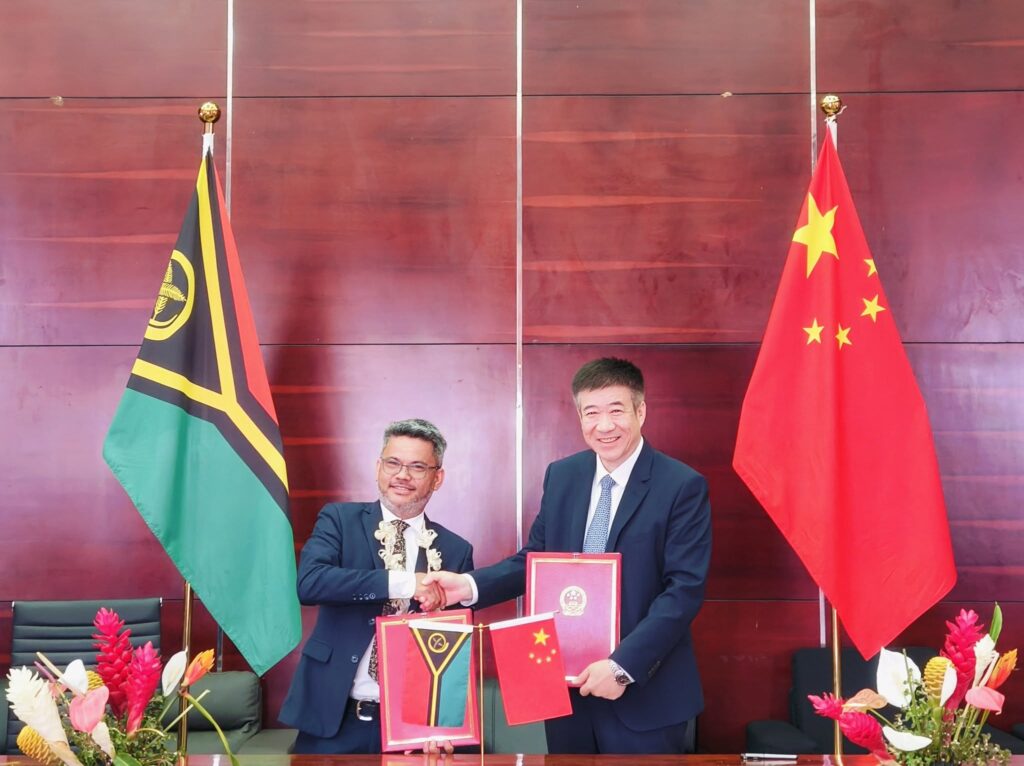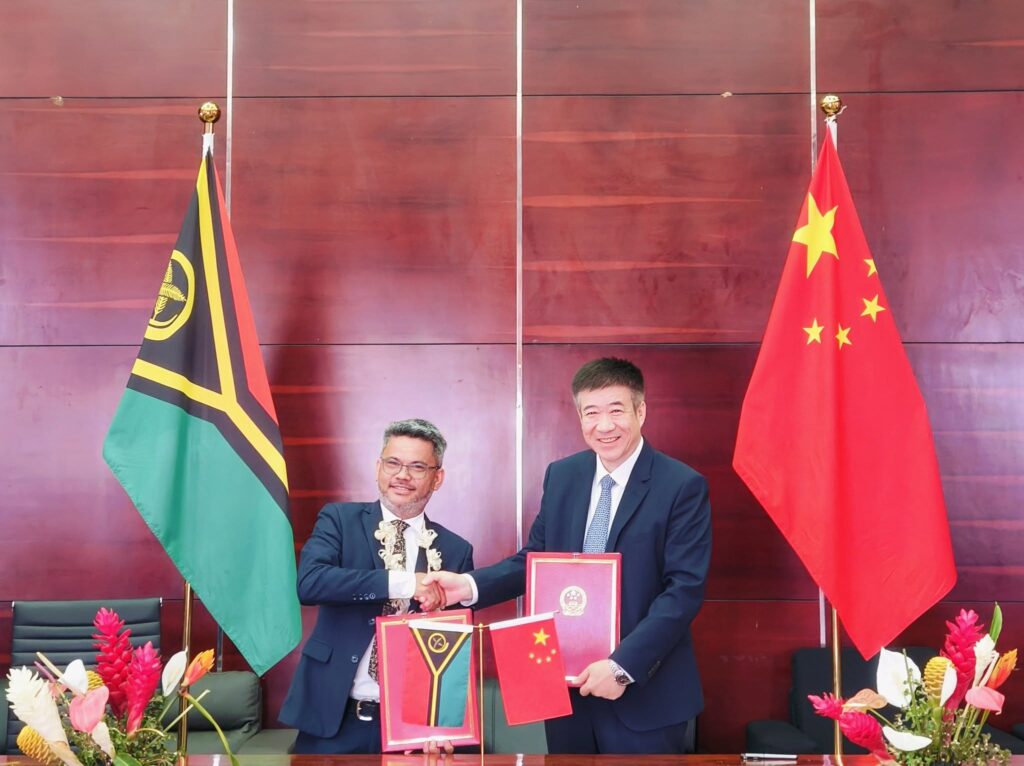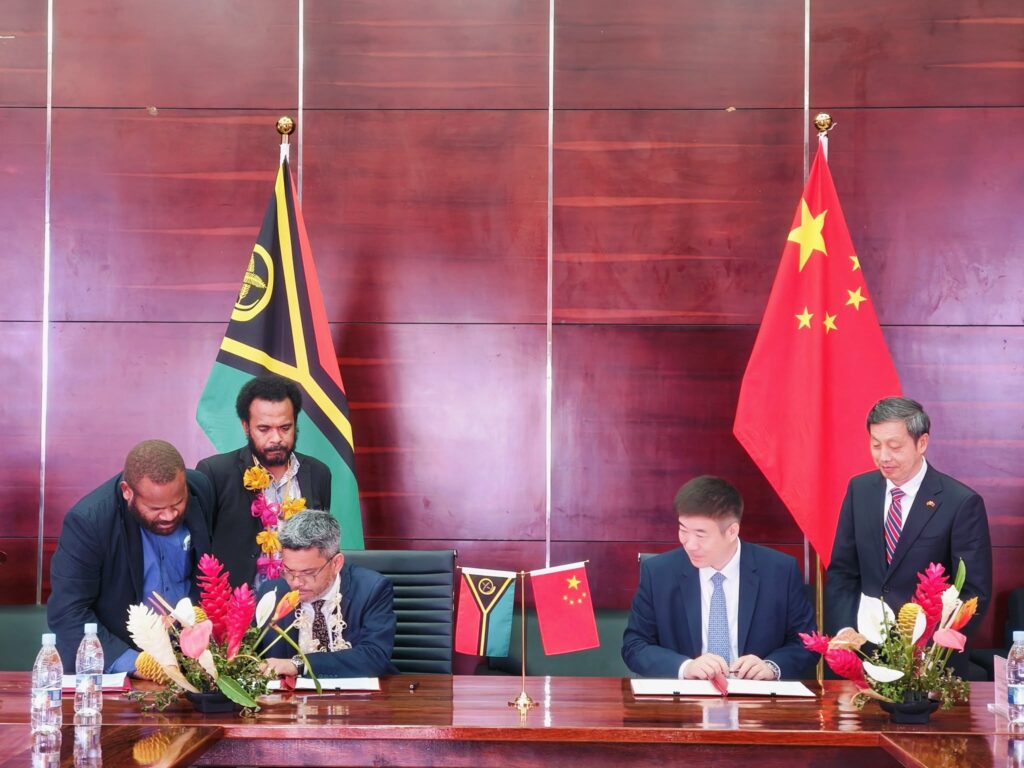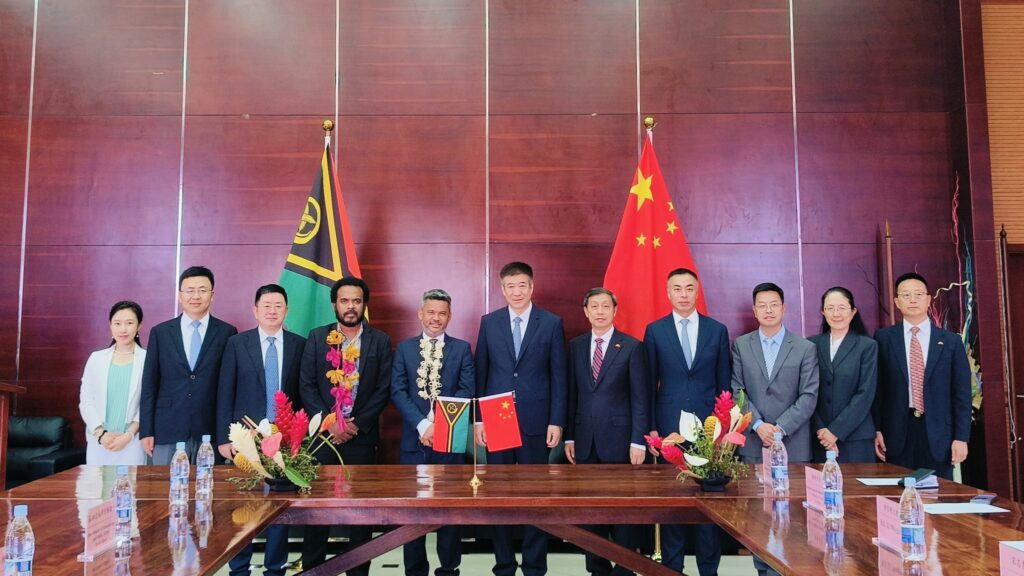



Port Vila, Vanuatu – December 4, 2024: The Governments of Vanuatu and China have solidified their partnership in aviation through the signing of a Bilateral Agreement on Civil Air Transport and a Memorandum of Agreement (MoA) on Traffic Rights. This historic agreement was finalized yesterday between the Vanuatu Government and the Civil Aviation Administration of China (CAAC), marking a significant milestone in fostering cooperation in aviation, tourism, and trade.
Speaking at the ceremony, CAAC Administrator Song Zhiyong highlighted the enduring friendship between Vanuatu and China, which has flourished over the past 42 years.
The agreements were the culmination of months of consultations, including discussions during Vanuatu Prime Minister Charlot Salwai’s visit to China earlier this year. During his visit, the Prime Minister emphasized the importance of positioning Vanuatu as a premier destination for Chinese investors and tourists, particularly through stronger connectivity with key Chinese cities like Shanghai.
On behalf of the Vanuatu Government, Caretaker Deputy Prime Minister and Minister of Foreign Affairs Matai Seremaiah expressed gratitude for the groundbreaking collaboration.
The agreement also marks the first formal collaboration between the Civil Aviation Authority of Vanuatu (CAAV) and the CAAC. According to CAAV Acting Director Ellory Takiau, the MoA facilitates direct flights between China and Vanuatu, opening opportunities for expanded air connectivity, including flights connecting Port Moresby, Papua New Guinea, and Port Vila, Vanuatu.
Discussions on direct flights from China to Vanuatu date back to 2018, when CAAC Deputy Director General Chen Wei met with Vanuatu officials to explore the viability of direct air links. At the time, CAAC pledged support for marketing Vanuatu as a destination for Chinese airline operators and investors.
These agreements mark a new chapter in Vanuatu-China relations, further strengthening their diplomatic, economic, and cultural bonds. Both nations are committed to leveraging this partnership to promote regional connectivity, boost tourism, and enhance trade opportunities.
